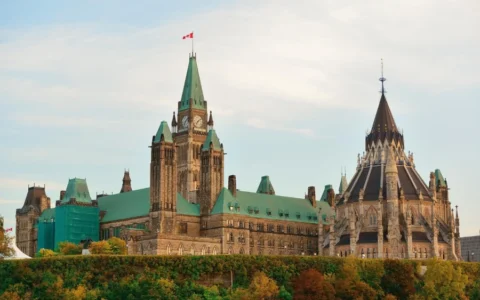The UK’s non-domiciled residents, a group of wealthy individuals who live in the country without being tax domiciled there, are facing a period of uncertainty and anxiety. This concern stems from the potential changes in their tax privileges, which have been a subject of debate and gradual reduction over the years. The Labour party, currently strong in polls for the upcoming general election, has announced plans to abolish the non-dom regime if they come into power.
David Lesperance, a tax advisor, highlights the growing worry among these non-domiciled residents, often referred to as ‘non-doms’. With the possibility of a Labour majority, these individuals, who include business owners, bankers, lawyers, and consultants, are contemplating their future in the UK. The implications of such a move are significant, not just for the individuals but also for the UK’s tax revenue and international competitiveness.
The non-dom status has been a contentious issue in the UK, with critics labeling it as unfair. The Conservative government had already made changes in 2017, ending the possibility of permanent non-dom status. The controversy was reignited following revelations about the wife of Prime Minister Rishi Sunak claiming non-dom status, though she later agreed to pay UK taxes on all her income.
Labour’s proposal aims to replace the non-dom rules with a simpler, modern system, potentially modeled after systems in countries like Canada, France, and Japan. The party plans to use the additional tax revenue for enhancing NHS staffing and funding school breakfast clubs. However, there is concern that such changes might not consider the actions of the wealthiest non-doms, who might choose to leave the UK, affecting tax revenues significantly.
The University of Warwick and the London School of Economics conducted a study revealing that abolishing the non-dom regime could generate an additional £3.6bn in tax annually. However, some argue that this does not account for the potential departure of the wealthiest individuals who contribute significantly to the tax pool.
The international context of this issue is also crucial. The UK, known for attracting wealthy individuals due to its financial and cultural significance, faces competition from other countries with similar tax privileged systems. Countries like Portugal, Italy, Spain, Greece, Malta, and Cyprus have introduced schemes to attract wealthy foreigners. Portugal’s non-habitual resident regime, for instance, has been particularly popular, though it’s set to be abolished in 2024.
Advisors note that the scrapping of Portugal’s regime could benefit other countries with similar systems, like Italy, where a new tax resident can pay a flat annual tax to shelter foreign earnings from Italian tax. The uncertainty in the UK is leading some non-doms to consider relocating to these countries.
However, not all non-doms are expected to leave the UK if the regime changes. Factors like lifestyle, family ties, and professional commitments play a significant role in their decision to stay or move. Some may find alternative solutions like setting up offshore trusts or becoming non-UK tax residents by spending more time abroad.
In summary, the UK’s non-domiciled residents are at a crossroads, with potential political changes threatening their current tax status. While some may consider relocation, others might adapt to the new rules, underscoring the complex interplay between tax policies, personal decisions, and global mobility of the wealthy.






